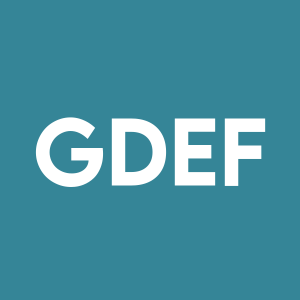Goldman Sachs Asset Management Announces Liquidation of Goldman Sachs Defensive Equity ETF
Goldman Sachs Asset Management (“GSAM”), the investment adviser for the Goldman Sachs Defensive Equity ETF (the “Fund”), announced today that the Fund’s Board of Trustees, at the recommendation of GSAM, has approved a plan of liquidation (the “Plan”) for the Fund. Under the Plan, which is effective today, the Fund will begin the process of liquidating portfolio assets and unwinding its affairs in an orderly fashion over time. The Plan is not subject to shareholder approval.
Shareholders of the Fund may sell their shares on the Fund’s listing exchange, NYSE Arca, Inc. (“NYSE Arca”), until market close on July 12, 2024 and may incur transaction fees from their broker-dealer. The Fund’s shares will no longer trade on NYSE Arca after market close on July 12, 2024, and the shares will subsequently be de-listed. Shareholders who continue to hold shares of the Fund on the Fund’s liquidation date, which is expected to be on or about July 19, 2024, will receive a liquidating distribution of cash in the cash portion of their brokerage accounts equal to the amount of the net asset value of their shares. For tax purposes, shareholders will generally recognize a capital gain or loss equal to the amount received for their shares over their adjusted basis in such shares. The Fund will stop accepting creation orders from Authorized Participants on July 12, 2024.
About Goldman Sachs Asset Management
Bringing together traditional and alternative investments, Goldman Sachs Asset Management provides clients around the world with a dedicated partnership and focus on long-term performance. As the primary investing area within Goldman Sachs (NYSE: GS), we deliver investment and advisory services for the world’s leading institutions, financial advisors and individuals, drawing from our deeply connected global network and tailored expert insights, across every region and market – overseeing more than
Goldman Sachs does not provide accounting, tax or legal advice.
© 2024 Goldman Sachs All rights reserved
NOT FDIC INSURED. MAY LOSE VALUE. NO BANK GUARANTEE. NOT INSURED BY ANY GOVERNMENT AGENCY.
GS Defensive Equity ETF (GDEF) began as the GS Defensive Equity Fund, an open-end mutual fund which had operated since September 30, 2020. Effective as of the close of business on January 20, 2023, GDEF acquired its assets and liabilities, and assumed its NAV performance, financial and other historical information. There were no changes to the investment strategy or objective of the Fund.
The Goldman Sachs Defensive Equity ETF (the “Fund”) seeks long-term growth of capital with lower volatility than equity markets. The Fund is an actively managed exchange-traded fund. The Fund typically invests in equity investments in
Fund shares are not individually redeemable and are issued and redeemed by the Fund at their net asset value (“NAV”) only in large, specified blocks of shares called creation units. Shares otherwise can be bought and sold only through exchange trading at market price (not NAV). Shares may trade at a premium or discount to their NAV in the secondary market. Brokerage commissions will reduce returns.
ALPS Distributors, Inc. is the distributor of the Goldman Sachs ETFs. ALPS Distributors, Inc. is unaffiliated with Goldman Sachs Asset Management.
A summary prospectus, if available, or a Prospectus for the Fund containing more information may be obtained from your authorized dealer or from Goldman Sachs & Co. LLC by calling (retail - 1-800-526-7384) (institutional – 1-800-621-2550). Please consider a fund's objectives, risks, and charges and expenses, and read the summary prospectus, if available, and the Prospectus carefully before investing. The summary prospectus, if available, and the Prospectus contains this and other information about the Fund.
The Investment Company Act of 1940 (the “Act”) imposes certain limits on investment companies purchasing or acquiring any security issued by another registered investment company. For these purposes the definition of “investment company” includes funds that are unregistered because they are excepted from the definition of investment company by sections 3(c)(1) and 3(c)(7) of the Act. You should consult your legal counsel for more information.
ALPS Control: GST 2580
Compliance Code: 375379-OTU-2049249
Date of first use: 06/12/2024
31544364
1 Assets Under Supervision (AUS) includes assets under management and other client assets for which Goldman Sachs does not have full discretion. AUS figure as of March 31, 2024.
View source version on businesswire.com: https://www.businesswire.com/news/home/20240612132023/en/
Victoria Zarella
Tel: 212-902-5400
Source: Goldman Sachs Asset Management








